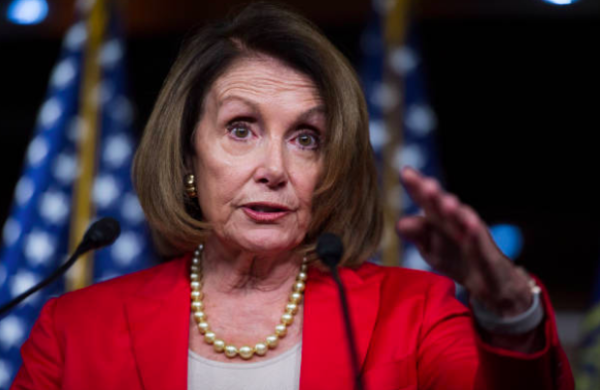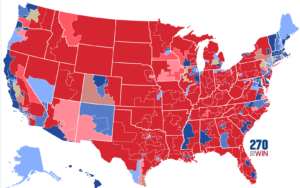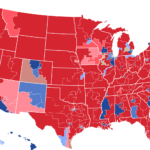In the United States today, only one branch of government at the federal level imposes term limits on officeholders. That would be the Executive Branch and more specifically the Chief Executive or the President of the United States. Senators, Representatives, Supreme Court Justices, and an assortment of state and local officeholders hold the distinction of being able to serve for life. This today represents an untold crisis because as Americans go about their lives, career politicians dictate policy for future generations. These politicians display a guided exterior, pretending to champion their constituents when they are really only concerned about reelection. This shouldn’t be able to occur so long as the people of this country have a say in the matter.
The Logic of Term Limits
The oldest and strongest argument against term limits is simply that constituents serve as natural term limits. When they decide a politician no longer serves them, they can vote them out of office. The inherent problem with this is in order for politicians to get to the point of being “voted out of office”, they usually need to engage in self-destructive behavior. In other words, if a Senator or Representative just goes about their business of lawmaking while not being the best representative of the people, there is little chance they will lose. And with most people voting party line, career politicians in non-competitive areas really can just sit back and win reelection.
So the central question really is, does the status quo need to change? In other words, should politicians in all offices be subject to limited terms? Based on numerous surveys and polls dating back decades, the answer is a resounding yes. American voters want it, plain and simple. According to a 2018 McLaughlin and Associates Survey, 82% of all voters support Congressional term limits. The poll showed that the support is bipartisan, with 89% of Republicans, 76% of Democrats, and 83% of Independents in favor of the measure. The broad support for term limits spans decades and generations of Americans.
So why then has little to no action on this front happened? The answer is career politicians who under no circumstances will vote to limit their own jobs. The logic is simple: keep a level-headed and low profile while serving in Congress and be rewarded with another term. Although some states have implemented term limits on their Governors and other offices, federal officeholders have almost never been subject to this treatment. This obviously represents a miscarriage of justice. Simply put, if we need term limits at the state level, then we also need them at the federal level.
Exploring Career Politicians
When discussing term limits, there are plenty of examples of long-serving politicians who exemplify why these limits are essential. Senators such as Chuck Grassley (R-IA) and Dianne Feinstein (D-CA) have single-handedly coined the term career politician by being in office for decades. Grassley has served in elected office since 1959, good for more than 60 years. For her part, Feinstein has served in several elected offices since 1966, good for 55 years. Both Senators, despite being in their late 80s, have committed to running for reelection when their respective terms end. This just highlights the discontent between long-serving politicians from a different era and the American people of today.
Both Grassley and Feinstein grew up and served the majority of their time in office in a completely different generation. They are now both considered well past the average age of a Senator (64) and at least in Feinstein’s case, have started to show visible declines in mental awareness. It is also important to note that Grassley and Feinstein’s wisdom is valued, but their age and time in office is not. In fact, the problem does not lie with age or experience at all (we need both in Congress). The problem is simply long (and currently unlimited) terms have become a problematic reality for the United States.
Just take current Senate Minority Leader Mitch McConnell and Democratic House Speaker Nancy Pelosi. Both politicians are of the career variety and both have had their share of controversies. For McConnell, he has been subject to everything from stymying voting rights legislation to obstruction of justice in regards to former President Donald Trump to preferential treatment of Supreme Court Nominees. For Pelosi, she has also been subject to controversies such as her 2002 comments on waterboarding and her recent hypocritical visit to a San Francisco hair salon in the middle of the Covid-19 Pandemic.
Other Considerations
The point that continuously arises with politicians in office is how long is long enough? There really is no consensus on this matter, but many have suggested a limit of 15-20 years for current officeholders. Perhaps a limit of 3 terms in the Senate (18 years) and 10 terms in the House (20 years) would be a reasonable compromise. The objective is to eliminate the cushy seats many career politicians have held for decades and frankly do not deserve. This kind of solution could potentially do that while still allowing politicians to serve their country faithfully. It would also make the playing field fairer, especially for officeholders who are already term-limited.
Now the next question will be is it fair to limit individuals with term limits even if they have been faithful officeholders and desire to serve longer? The answer is yes because term limits are already a known commodity. If it wasn’t fair, just, or ethical to impose term limits on Senators and Representatives, why have many states done it to their Governors? Can politicians overstaying their welcome only occur in states and not Washington? Of course not, that is why term limits on all offices are so essential. If we can impose limits, the result would be politicians who are naturally more accountable to their constituents.
In fact, these limits are all the more important when considering local offices. With many municipalities, positions such as supervisors, council members, and commissioners do not currently have term limits. This means the politicians that affect people the most can often serve in office the longest. The result is sub-optimal communities due to career politicians overstaying their welcome and not allowing a newer generation to see the light. By imposing term limits on all offices, local politicians would be held just as accountable as state and federal officeholders.
Gilded Politicians
The argument comes full circle when discussing constituents being “natural term limits.” The reason this logic is inherently flawed is career politicians specialize in a gilded exterior. In other words, from the outside, they look polished and capable of serving. But on the inside, their personal agendas in many cases have handicapped their judgment. Why is this? Because a politician that is guaranteed to be reelected every two, four, or six years has little to no incentive to serve their constituents faithfully. Moreover, these politicians have every incentive to keep a low profile in order to win reelection. This is because well-known figures are more likely to lose reelection if voters are not happy with them.
A gilded politician is in fact an individual that forgets about their constituents at all times except election season. This is demonstrably true considering politicians only distribute campaign signs and political literature every few years. Why don’t politicians advertise themselves and attempt to reach out to their constituents at all times, not just when they are up for reelection? It is because they simply do not have to. And how does this problem continue? By campaign after campaign, or better said, a career politician in office for decades who cares little for his constituents.
At some point, voters have to put their foot down and say enough is enough. They need to petition their local, state, and federal elected officials to enact change on this issue. Now many of these individuals are likely the garden variety career politician, so people must go a step further. They must commit to electing candidates that vow to impose term limits on state and federal offices. Or, they must take the initiative and run a campaign themselves championing the issue of term limits. This in fact is the only way people are ever truly going to affect change on this issue.
The Term Limit Roundup
Clearly, there has never been a more important moment to implement term limits. With elderly and past their prime Senators and Representatives promising to run for reelection, the time for action is now. Gilded politicians, despite their likely staunch opposition to this issue, need to hear their constituents. There can no longer be career politicians that people rubber stamp into office. Voters should try their best to be informed, but as mentioned, politicians often cover up their true motives in office. Regardless, grassroots action can and should happen on this issue. That will be the only way real change ever occurs. So go out and demand that your local representatives adhere to term limits because the integrity of all officeholders is quite literally at stake.
Main Photo from Getty.













